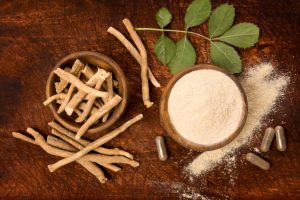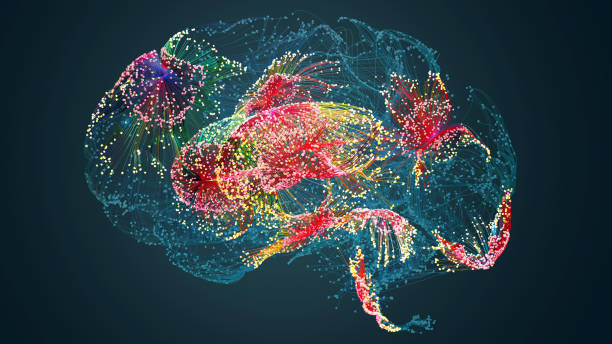Table of Contents
ToggleMaintaining good brain and cognitive health is crucial for leading a happy and fulfilling life. A healthy brain allows us to think clearly, process information effectively, and make sound decisions. As we age, it becomes increasingly important to take care of our brains to prevent cognitive decline and improve overall cognitive function. One way to support brain health is by incorporating organic supplements into our daily routines.
Several organic supplements are particularly effective for brain health. These include omega-3 fatty acids, ginkgo biloba, bacopa monnieri, and ashwagandha.
Understanding the Importance of Healthy Brain Function
Understanding the importance of healthy brain function is crucial for living a fulfilling life.
The brain is the control center of the body, responsible for regulating all bodily functions and processing information. A healthy brain enables individuals to think clearly, process emotions, and make decisions effectively.
There are many ways to promote healthy brain function. Physical exercise, a healthy diet, and good sleep habits all play vital roles in maintaining a healthy brain.
Regular exercise increases blood flow to the brain and promotes the growth of new brain cells, while a balanced diet that includes omega-3 fatty acids, antioxidants, and vitamins promotes brain health. Getting enough sleep is also essential as it allows the brain to rest and recover.
Mental stimulation is another crucial aspect of maintaining healthy brain function. Engaging in mentally challenging activities, such as puzzles, reading, and learning new skills, helps to keep the brain active.
Social interaction and maintaining positive relationships are also essential for mental health as they provide a sense of belonging, reduce stress, and stimulate the brain.
How Sleep Affects Cognitive Function
Sleep is a crucial aspect of our daily lives and it is essential for maintaining optimal cognitive function. The quality and quantity of sleep can greatly impact our ability to learn, remember, and process information.
During sleep, the brain consolidates memories, removes toxins, and recharges for the next day. Inadequate or poor-quality sleep can hurt cognitive function, including attention, concentration, memory, and decision-making.
Sleep deprivation can affect the prefrontal cortex, the region of the brain responsible for executive functions such as attention, problem-solving, and decision-making. Lack of sleep can lead to reduced alertness, impaired judgment, and slower reaction times.
Studies have shown that sleep deprivation can lead to impaired cognitive performance similar to that of alcohol intoxication. Sleep deprivation has also been linked to mood disorders such as anxiety and depression.
In contrast, sufficient sleep can improve cognitive performance. During sleep, the brain consolidates newly learned information and forms new connections.
This enhances memory recall and retention. Studies have also shown that a good night’s sleep can enhance creativity, problem-solving abilities, and decision-making.
Upgrade your sleep experience with PlushBeds’ organic mattresses! Say goodbye to discomfort and pain and hello to a rejuvenating night’s sleep.
Made from natural, organic materials, PlushBeds mattresses offer the exceptional comfort and proper support that your body needs. Choose from a wide range of sizes and styles to fit your needs and preferences. Upgrade your bedding today and experience the difference in the quality of your sleep with PlushBeds.
Top Organic Supplements for Brain Health
If you’re looking for top organic supplements to boost your memory and brain health, there are a few key players to consider.
Omega-3 Fatty Acids
Omega-3 fatty acids are essential fatty acids that are necessary for good health. These fatty acids cannot be produced by the body, and therefore, it is essential to consume them through the diet.
They are important for many bodily functions, including brain health, reducing inflammation, and improving heart health.
One of the primary benefits of omega-3 fatty acids is their role in promoting brain health. Studies have shown that omega-3 fatty acids can improve cognitive function, memory, and mood.
They are also believed to play a role in reducing the risk of developing age-related cognitive decline and Alzheimer’s disease.
There are several sources of omega-3 fatty acids, including fatty fish such as salmon, mackerel, and sardines. Plant-based sources of omega-3 fatty acids include flaxseed, chia seeds, and walnuts.
It can be challenging to consume enough omega-3s through diet alone, and in such cases, plant-based supplements can be used to increase omega-3 intake.
Bacopa Monnieri
Ayurvedic medicine has used Bacopa Monnieri as a medicinal herb for centuries, and it is also known as Brahmi, Water Hyssop, or Herb of Grace.
This plant is native to wetlands in India, Nepal, Sri Lanka, China, Taiwan, and Vietnam. It contains active compounds such as bacosides, alkaloids, and flavonoids, which are believed to be responsible for their therapeutic effects on brain health.
Research has shown that Bacopa Monnieri can improve cognitive function, particularly memory, learning, and information processing speed. It has also been found to have anxiolytic effects, reducing symptoms of anxiety and stress.
The recommended dosage of Bacopa Monnieri is 300-600mg per day, taken with meals. However, it is important to note that some people may experience mild side effects such as stomach discomfort, nausea, and dry mouth.
Ginkgo Biloba
The ginkgo tree’s leaves are the source of the natural supplement Ginkgo biloba.
In traditional medicine, people have used this ancient plant for centuries to treat a variety of ailments, and its popularity has continued to grow in modern times. Ginkgo biloba, in particular, is renowned for its ability to support brain health and cognitive function.
One of the key benefits of ginkgo biloba is its potential to improve cognitive function. Studies have shown that it may enhance memory, focus, and attention span, making it a popular choice among those looking to boost their brain power.
It does this by improving blood flow to the brain, which can help protect brain cells from damage and improve overall brain function.
When it comes to dosage, the recommended amount of ginkgo biloba can vary depending on the individual and the reason for taking it.
Experts suggest taking between 120 and 240 milligrams per day. It’s important to note that taking too much ginkgo biloba can cause side effects such as headaches, dizziness, and digestive issues.
Ashwagandha
Ashwagandha, with its numerous health benefits, is gaining popularity as a traditional herb commonly used in Ayurvedic medicine.
Also known as Withania somnifera, ashwagandha is a small shrub with yellow flowers and red fruit that grows in India, the Middle East, and parts of Africa.
One of the most significant benefits of ashwagandha is its potential to improve brain function and reduce stress levels.
Studies have shown that ashwagandha can reduce cortisol levels, which is a hormone that your body produces in response to stress. By reducing cortisol levels, ashwagandha can help to lower stress and anxiety levels, leading to better cognition, supporting healthy brain function, and improved memory.
Ashwagandha also contains compounds called withanolides, which have been shown to protect brain cells from damage and improve overall brain function.
These compounds have been found to enhance neuronal growth and increase the production of neurotransmitters like acetylcholine and dopamine, which are important for memory, focus, and mood.
To experience the benefits of ashwagandha, it is typically recommended to take between 500-600mg of the herb extract per day. However, it is important to note that ashwagandha can interact with certain medications and may cause side effects like upset stomach, diarrhea, and nausea.
Rhodiola Rosea
Rhodiola Rosea, also known as golden root or Arctic root, is a perennial plant that grows in cold regions such as the Arctic and mountainous areas of Europe and Asia.
It has been used in traditional medicine for centuries to treat a variety of health conditions.
Recent studies have shown that Rhodiola rosea may have a positive impact on brain health. It has been found to have adaptogenic properties, which means that it helps the body and brain adapt to stress.
This can lead to improved mood, reduced fatigue, and increased mental clarity. Rhodiola rosea has also been shown to have anti-inflammatory and antioxidant properties, which may protect the brain from damage and improve cognitive function.
The recommended dosage of Rhodiola rosea varies depending on the form it is taken in. For supplements, the recommended dose is typically 200-600 mg per day, taken in divided doses. It is important to start with a low dose and gradually increase it to avoid any potential side effects.
These may include dry mouth, dizziness, and irritability. Pregnant or breastfeeding women and individuals taking medications for anxiety or depression should consult their healthcare provider before taking Rhodiola rosea.
In summary, Rhodiola rosea is a plant with potential benefits for brain health, including improved mood, reduced fatigue, and increased mental clarity. It is important to take the recommended dosage and be aware of potential side effects.
As with any supplement or medication, it is best to consult with a healthcare provider before starting to take Rhodiola rosea.
Lion’s Mane Mushroom
Lion’s Mane Mushroom, scientifically known as Hericium erinaceus, is a unique and edible mushroom native to North America, Europe, and Asia.
It is known for its distinctive appearance, resembling a lion’s mane with long, flowing white strands.
Research suggests that lion’s mane mushroom has several benefits for brain health. It contains compounds that stimulate the growth and repair of nerve cells, which may improve cognitive function, memory, and focus.
Some people believe that it reduces symptoms of depression and anxiety by increasing the production of certain neurotransmitters, including dopamine and serotonin, which regulate mood.
To benefit from lion’s mane mushroom, you can consume it as a dietary supplement in capsule, powder, or liquid form. The recommended dosage may vary depending on the formulation and intended use, but generally, experts suggest taking 500-3000 mg per day.
It is always advisable to consult with a healthcare professional before taking any dietary supplements, particularly if you have any underlying health conditions or are taking medications.
While lion’s mane mushroom is generally safe for most people, some potential side effects may occur.
These may include digestive issues, such as diarrhea or stomach discomfort, or allergic reactions in some individuals. It is important to be mindful of any adverse effects and stop use if they occur.
Overall, lion’s mane mushroom appears to be a promising natural supplement for brain health with potential benefits for cognition, mood, and overall well-being.
The Impact of Stress on Cognitive Function
Chronic stress has a significant impact on cognitive function, with research linking it to memory loss and difficulty with decision-making.
This is because stress triggers the release of hormones like cortisol and adrenaline, which can disrupt the brain’s normal functioning. When stress is chronic, these hormonal imbalances can cause long-term damage to the brain and result in cognitive decline. It can also lead to other mental health issues such as anxiety and depression.
Fortunately, there are ways to manage stress and support brain health. Mindfulness techniques, relaxation exercises, and meditation are effective strategies for reducing stress and promoting cognitive function. Practicing mindfulness involves being present in the moment and paying attention to your thoughts and feelings without judgment.
Relaxation exercises, such as deep breathing or progressive muscle relaxation, can help to calm the body and mind. Meditation involves focusing your attention on a specific object, word, or phrase to achieve a state of mental clarity and calm.
It’s important to prioritize stress management as part of your overall health and wellness routine.









